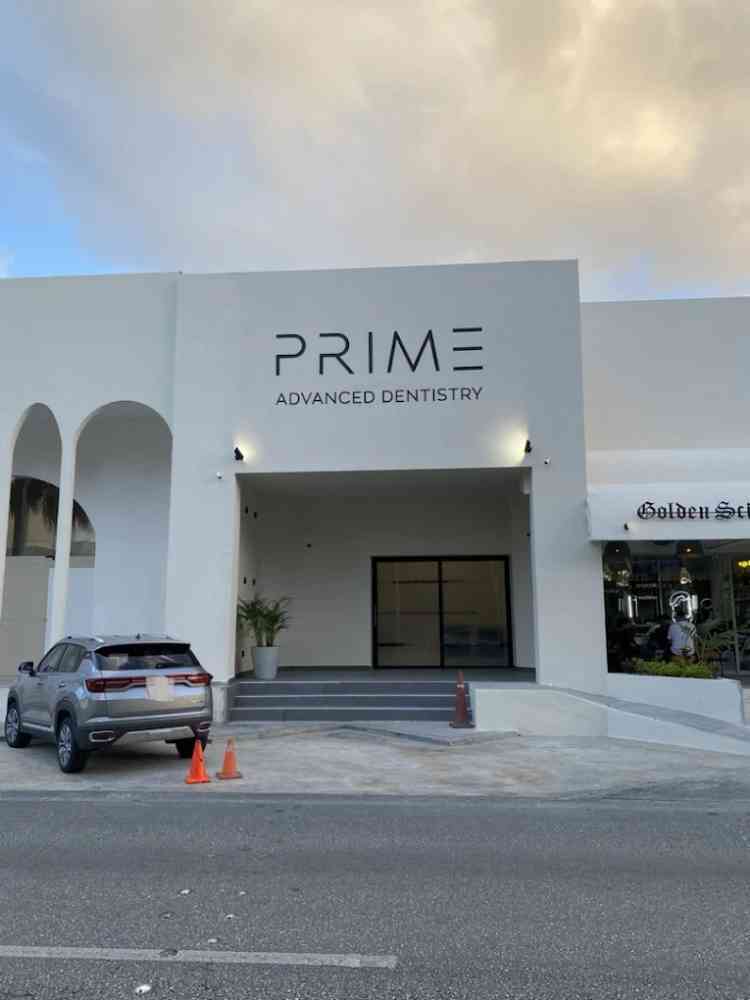Everything You Need To Know About Dental Veneers Teeth

Prathyusha Itikarlapalli
- Content Writer

Gustavo Moreno Vargas
- Reviewed by

Table of contents
None
Key Takeaways
- Dental veneers are tooth-colored, thin shells that can cover irregularities, chips, breaks, stains, and gaps in front teeth.
- Veneers cover only the front portion of the teeth and serve cosmetic purposes.
- Dentists remove some portion of the enamel and roughen dental veneers teeth surface to fix the veneers.
Natural teeth develop chips, breaks, and discoloration over time due to the foods you eat or the lifestyle you adopt. Foods like coffee, tea, blueberries, red wine, and smoking cigarettes tend to discolor teeth. Further, the front teeth break in some individuals while biting on hard foods like nuts or hard candies. Tooth enamel naturally erodes over time due to poor oral hygiene or due to the acidic content in the food. This causes chips or breaks or faint awkward streaks or lines on teeth. Especially when these issues are concerned with the front teeth, it can significantly impact your smile. Dental veneers offer a comprehensive solution to any of these concerns.
Dental Veneers Definition
Dental veneers are wafer-thin white-colored shells that can conceal the flaws of your front teeth. Being tooth-colored, they bring an appearance very close to natural teeth. Dental teeth veneers can correct or hide chips, cracks, stains, gaps, and other irregularities like crooked teeth. They primarily deal with aesthetic dental concerns. Their performance on the functional scale is relatively less.

Let’s step into details now. Dental prostheses like crowns or bonding are quite similar. They effectively conceal the aesthetic concerns while restoring some major functionalities. Here is a brief comparison between teeth veneers and other solutions.
- Dental veneers vs bonding: Dental bonding offers an effective solution for cavities. The dentists use composite resin material to cover the cavities. Cometic dentists also use dental bonding to cover the irregular shape left by broken teeth. While the procedure for getting both treatments is different, bonding typically costs less. Veneers are a relatively expensive procedure requiring two dental visits. On the other hand, dental bonding requires a single visit to your dentist.
- Dental veneers vs crowns: Dental crowns or teeth caps cover the entire tooth portion and are best for restoring severely decayed teeth. They mimic natural teeth and can, of course, add strength to the damaged teeth. Dental veneers teeth, on the other hand, are teeth-colored shells. They cover only the front portion of the tooth and do not add any strength to the existing tooth structure.
- Dental veneers vs implants: Dental implants are metal screws bearing artificial teeth. They will be fixed into your jawbone in spaces left by missing teeth. On the other hand, dental veneers will be fixed on the front portion of an existing tooth using dental adhesive. While veneers add symmetry and radiance to your smile, implants, on the other hand, behave like natural tooth roots. They can restore functions like chewing and speaking with clarity while preserving the health of your jawbone.
Now that you know the specific differences between veneers and other dental procedures that serve similar purposes, let’s focus on understanding various popular types of dental veneers.
Dental Veneers Types
Teeth veneers typically vary in material and method of fixing. Below, we listed different veneer types.
- Porcelain veneers: Ceramic or porcelain veneers are composed of highly translucent, biocompatible porcelain. These possess higher abrasion resistance and are highly durable. The indirect porcelain veneers for teeth are popular for their natural look and better performance over a longer duration.[1]
- Composite-resin veneers: They are also called direct composite veneers and are an economical choice. They are composed of tooth-colored resin material and are very similar to natural teeth.[2]
- Lumineers: They are ultra-thin porcelain veneers that are more of a non-invasive treatment. Being ultra-thin, lumineers do not require extensive dental veneers tooth preparation.
Are you impressed by the different types of dental veneers but wondering how many you would need? We covered this for you.
How Many Teeth Do You Get Veneers On?
Typically, dental veneers are fixed per tooth. The number of veneers one needs depends on the extent of damage and one's aesthetic expectations. Suppose one of your teeth is broken or chipped. Your dentist will fix one veneer to impart symmetry to your smile. However, this is different in case you opt for dental veneers teeth for a smile makeover. It's because smile makeovers or cosmetic dentistry deal with imparting symmetry to your smile. And to fix this, you will need veneers on your front teeth that show up evidently when you smile for a cohesive look. While many choose 4 veneers on front teeth, its results are confined to the upper jaw solely. To impart a symmetrical look to your smile, dentists suggest 8-10 veneers per jaw. This covers most of the teeth, leaving behind the molar and premolars. Suppose you choose the economical options. You may also choose 6 veneers to cover four incisors and two canines.
Whether you choose dental veneers for crooked teeth or dental veneers for crowded teeth, the procedure of getting them totally depends on the veneer type. Now, let’s look at the procedure for getting veneer on teeth.
Veneer Teeth Process
Your veneer teeth process begins with an initial consultation, where you will discuss your oral health concerns. The dentist will examine your oral cavity, understand your aesthetic concerns, and explain the treatment plan.
The dentist will examine your oral cavity, understand your aesthetic concerns, and explain the treatment plan. You can expect two treatment methods for cosmetic dentist veneer teeth. One is the direct method, where the dentist sculpts and carves the tooth veneer material directly on the tooth surface. The other is the indirect method, where dental technicians prepare custom-fit veneers in a cosmetic dentist lab, and your dentist will fix them on the prepared tooth.
Getting Porcelain Veneers on Teeth
Porcelain veneers require two dental visits to the clinic. Before fixing the porcelain veneers, your dentist will prepare your teeth. They will remove some amount of tooth enamel and roughen the surface through a process called etching. Veneers fixed on the etched surface last longer rather than slipping on a smooth surface. Your dentist will collect the impressions of these teeth prepped for veneers and send them for custom-fit veneer preparation. You will receive temporary shells to cover the etched surface until the porcelain veneers are ready. Once the veneers are ready, your dentist will match their color and shade and fix them using a dental adhesive. The new porcelain veneers teeth are ready to dazzle like your natural teeth.

Getting Composite Resin Veneers on Teeth
Composite resin veneers will be fixed directly on your teeth. This requires a single visit to the dental clinic. Your dentist will clean the tooth surface and begin the process by reshaping it. Next, they will apply the composite resin on the veneers teeth shaved down. Your dentist will ensure that the shade of the tooth-colored resin matches with your natural teeth. They will sculpt the resin material on the tooth surface and allow it to harden using a light source. Further, the dentist smoothens the surface and polishes it for a smoother and more natural look after hardening.
Don’t worry about the porcelain veneers teeth shaving, or other etching procedures. Your dentist will numb your gums using a local anesthetic. So you don’t feel any discomfort or anxiety during the process of getting dental veneers.
Knowing the simplicity of the procedure, are you wondering about the permanence of dental veneers? Scrolling down can help you find an answer!
Are Veneers Permanent?
Dental veneers are not permanent, as they need replacement after some years. Typically, ceramic (porcelain) veneers last longer than the composite resin veneers.[3]
With proper aftercare, porcelain veneers last for 10 years. While mentioning veneer longevity, it’s essential to note that getting dental veneers is an irreversible process. The reason is that veneers involve the removal of tooth enamel. And once a veneer falls or breaks due to bad aftercare, you will definitely require a replacement.
Aftercare for Dental Veneers Teeth
Your new teeth veneers need to be cared for properly. Good aftercare post-dental veneer treatment ensures the success of your treatment.
- Maintain oral hygiene by flossing regularly and brushing your teeth twice daily. Abrasive and complex toothpaste formulations can harm your veneers. You may use a non-abrasive fluoride toothpaste.
- Refrain from biting on hard foods. Avoid biting your nails. Your new veneers may break when you chew hard ice, candies, and nuts.
- Use a night guard if you have a habit of night grinding or bruxism. Grinding can cause veneers to chip or break, and wearing a night guard can protect against this.
- Never miss your follow-up appointments and regular dental check-ups. Don’t hesitate to consult your dentist in case you notice any breaks or chips.
- Use a non-alcohol mouthwash for oral care. The alcohol component in routine mouthwashes can dissolve the bonding material.
Note that you are not a candidate for teeth whitening after getting dental veneers. The peroxide gels used in teeth whitening can scratch dental veneers.
Getting dental veneers and caring for them is indeed simple. Before opting for the treatment understand the advantages and disadvantages.
Veneers Teeth Pros and Cons
Every choice has its pros and cons. Here, we tabulated the pros and cons of dental veneers teeth.
|
Dental Veneers Advantages |
Dental Veneers Disadvantages |
|
Simple procedure to enhance the smile |
Irrverrisble procedure |
|
Blend with natural teeth |
Can cause tooth sensitivity in some individuals |
|
Additional maintenance not needed |
Poor dental treatment can cause veneers to fall off |
|
Durable and lasts for up to 10 years with proper care |
Cosmetic procedure not covered by insurance |
Having known the disadvantages of the choices, are you wondering why veneers are bad?
Are Veneers Bad for Your Teeth?
Although rare, dental veneers can cause tooth sensitivity in some individuals. Your dentist will remove some portion of enamel to make room for veneer placement. This removal exposes dentin, causing tooth sensitivity. Further, veneers are an irreversible procedure. If your veneers develop chips, break, or fall off, you will need a new set of veneers, but you can never leave your teeth as such.
Understanding Costs for Dental Veneers
The cost of dental veneers varies with the type of material they are made from. In the United States, dental veneers cost per tooth is around $900. This porcelain veneer's price is lower than the price of lumineers, which is $1,100 per tooth. Lumineers are extra thin and utilize advanced technology which accounts for the high cost.
The other factor that influences dental veneer cost is the geographical location. Veneers price varies with the city, dentist, and clinic you choose. Dental tourism destinations like Turkey, Mexico, India, and Costa Rica offer affordable prices on dental veneers. For instance, consider dental veneers Mexico, where the costs begin at $450 per unit. This porcelain veneer cost is indeed lower than the cost of a single zirconia veneer, which costs $490 in Mexico. In countries like Turkey and Costa Rica, the average cost of veneers is $260 and $350 per unit, respectively. Below, we tabulated the veneer average costs in some countries across the world.
Cost of Dental Veneers in Different Countries
|
Country |
Cost of Veneers (per unit) |
|
United States |
$1,100 |
|
Canada |
$1,000 |
|
Mexico |
$450 |
|
Turkey |
$260 |
|
Costa Rica |
$350 |
|
Thailand |
$200 |
#Prices may vary depending on the case.
The price disparity among different countries is quite evident from the above information. Factors like the country's cost of living and dental material costs are the reasons behind this price difference.
While veneers are quite expensive in developed countries, dental insurance does not cover the costs. While the costs are hefty in the US or Canada, simply 2 front teeth veneers cost would not be a burden. However, when you plan veneers for a smile makeover, it can burn a hole in your pocket. For instance, the porcelain veneers cost full-mouth in the States costing you around $13,000 solely for the treatment. Plus, you will need to pay additional costs for dental examinations, anesthesia, and night guards. In countries like Mexico, many reputed clinics are oriented towards dental tourism. While they offer affordable prices, they also offer amenities like complimentary consultations and dental examinations. One can save substantially by choosing dental tourism destinations like Turkey or Mexico for veneer treatment.
However, choosing a dentist abroad can be a tough job, and making decisions in uncertainty can be stressful. Hence, we guide you on the criteria to consider for making the right choice.
How To Find the Right Dentist for Dental Veneers Teeth?
You need to perform rigorous research to find the right dental professional for your dental veneers treatment. Check out the dentist's qualifications, expertise, certifications, and other credentials before making your choice. Further, rely on reputed providers with professional affiliations with globally recognized organizations. You may check the cosmetic dentist reviews and dental veneers before and after images. While real patient testimonials speak about the quality of care, veneers for teeth before and after photographs depict the naturality of results.
You may also research the local medical regulations and standards of dental practices adopted in the destination. This will help you access the clinic's standards of safety and procedures. Further, research on the patient protection laws and understand the warranties for your treatment.
Are you still looking for support? At Envoy Health, we believe everyone deserves a healthy smile. We make your dental experience stress-free and comfortable. Sign up with our platform and start your path to a perfect dental experience. Shine like never before with Envoy Health by your side!
References
Disclaimer
The information in this article is for educational purposes only and does not replace medical advice. Always consult your doctor before starting any treatments.
Veneers require the removal of tooth enamel, which can cause sensitivity in some individuals. However, effective diagnosis and candidate evaluation before the veneer treatment can avoid this.
Porcelain veneers are made of tooth-colored ceramic. They are highly durable and best known for their natural look. These veneers are also called indirect veneers as they are prepared in the cosmetic dentist lab.
The teeth under veneers get etched and remain as such after you get veneers. When you maintain proper oral hygiene, you won’t notice any decay in the teeth under veneers.
With proper care, teeth veneers can last up to 10 years. Typically, porcelain veneers last longer than composite resin veneers.
Typically, dental insurance does not cover veneers. Dental veneers can primarily satisfy aesthetic concerns. Dental insurance largely deals with vital and functional dental works rather than elective and cosmetic procedures.
Veneers are largely for aesthetic purposes. They do not address functional aspects or oral health issues, so it's hard to mention that they are good for teeth. However, they are a great fit if you are planning veneers to satisfy aesthetic requirements.
Veneers are thin dental parts and sensitive to abrasive toothpastes. The teeth whitening procedure utilizes strong peroxide gel combinations to remove tough stains on teeth, which can cause scratches on the veneers. So, veneers cannot be subjected to teeth whitening procedures.
So, we partner with the premier healthcare facilities!
Send me the list








